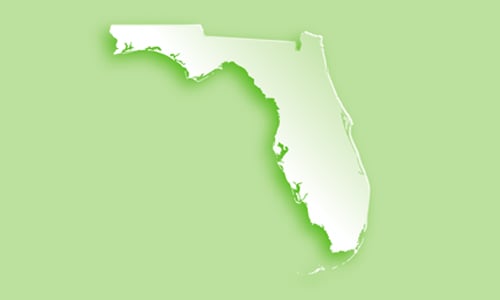Summertime Trust Changes: Florida’s Newest Trust Laws Effective as of July 1, 2022 Includes SLAT-Friendly Legislation

Florida’s newest trust laws taking effect this summer are turning up the heat in what is already a hot estate planning scene. With the federal estate and gift tax exemption for U.S. citizens and U.S. domiciliaries at a historic high[1] (until its scheduled decrease in 2026) (the “Exemption Amount”), the recent amendments to Florida’s trust laws, which are effective as of July 1, 2022, evidence Florida’s continued desire to be an attractive trust law jurisdiction. For example, Florida increased its already lengthy perpetuities period (i.e., the length of time a trust may exist) from 360 years to 1,000 years.[2] Another more notable amendment includes expanded benefits of Spousal Lifetime Access Trusts (“SLATs”) in Florida, the benefits of which are discussed below.
SLATs are beneficial estate planning tools that allow married couples to transfer wealth while allowing indirect access by each spouse to the transferred assets. SLAT planning is also an effective way to utilize the remaining Exemption Amount of one or both spouses—the idea being that one spouse (the “Donor Spouse”) creates an irrevocable trust and transfers certain assets to such trust to be held for the primary benefit of the other spouse (the “Beneficiary Spouse”) for the Beneficiary Spouse’s lifetime. The benefits of such planning can include, but are not limited to, creditor protection under state law and removal of such assets from the gross estates of both the Donor Spouse and Beneficiary Spouse for federal estate tax purposes. Given that the transfer by the Donor Spouse is designed to be a completed gift for federal gift tax purposes, the transferred assets are intended to be removed from the Donor Spouse’s taxable estate and any appreciation thereon, from the time of the initial gift, will also be exempted from estate tax, even upon the Beneficiary Spouse’s death. Although the Donor Spouse is not a beneficiary of the SLAT, he or she may presumably indirectly benefit from the SLAT as long as the Beneficiary Spouse is living and the Donor Spouse and Beneficiary Spouse remain married.
Like any advanced estate planning technique, SLATs do not come without risk. Generally, the main concern clients may have is losing the indirect benefits of such irrevocable transfers to the SLAT upon divorce from, or death of, the Beneficiary Spouse. Florida’s latest SLAT-friendly legislation, however, mitigates the risks associated with the latter event.
Prior to being amended, Florida Statute Section 736.0505 provided that if a Donor Spouse became a beneficiary of the SLAT after the death of the Beneficiary Spouse, or, alternatively, if the Beneficiary Spouse had the power to appoint the trust assets in further trust for the benefit of the Donor Spouse, then the trust assets were available to the Donor Spouse’s creditors. A creditor’s ability to access such trust assets under state law is problematic with regard to federal estate and gift tax purposes as it thwarts the principal benefits behind SLAT planning which is protection against the trust assets being included in the Donor Spouse’s gross estate.[3]
Florida’s recent amendment to Florida Statute Section 736.0505(3) significantly changes the SLAT-planning landscape for Florida trusts.[4] With the amended statute, the Donor Spouse may become a beneficiary of the SLAT in the event of the Beneficiary Spouse’s death without such assets becoming subject to claims by the Donor Spouse’s creditors. This amendment is key to resolving clients’ concerns regarding the loss of indirect access to the irrevocable transfers due to the death of the Beneficiary Spouse.
However, SLATs must be carefully drafted in order to be afforded this added creditor protection. Applicable only to SLATs established after June 30, 2022, such trusts must meet the following three (3) criteria:
- The Beneficiary Spouse must be a qualified beneficiary for the remainder of his/her lifetime;
- The Donor Spouse cannot be a qualified beneficiary of the SLAT[5] until after the death of the Beneficiary Spouse; and,
- The Donor Spouse’s transfer to the SLAT must be a “completed gift” as per Internal Revenue Code Section 2511.
Florida’s recent adoption of this SLAT-friendly legislation is not only a positive change to Florida’s already competitive trust law, but also amplifies current opportunities for married couples seeking to capitalize on the current Exemption Amount before it decreases in 2026.
__________________________________________________
[1] $12,060,000 per individual; $24,120,000 per married couple.
[2] See Section 689.225(2)(g), as added pursuant to S.B. 1368, 2022 Leg., Reg. Sess. (Fl. 2022).
[3] In Revenue Ruling 76-103, the IRS found that if trust assets are subject to the Donor Spouse’s creditor claims under state law, then the initial transfer to trust was not a completed gift and therefore, the assets are still considered to be included in the Donor Spouse’s gross estate.
[4] Note that Florida Statute Section 736.0505(3) already provides creditor protection for two other categories of trusts in which assets are contributed by the Donor Spouse: i) marital deduction trusts; and ii) qualified terminable interest trusts (or “QTIP trusts”).
[5] Florida Statute Section 736.0103(19) defines a “qualified beneficiary” to be “a living beneficiary who, on the date the beneficiary qualification is determined: (a) Is a distributee or permissible distributee of trust income or principal; (b) Would be a distributee or permissible distributee of trust income or principal if the interests of the distributees described in paragraph (a) terminated on that date without causing the trust to terminate; or (c) Would be a distributee or permissible distributee of trust income or principal if the trust terminated in accordance with its terms on that date.”
